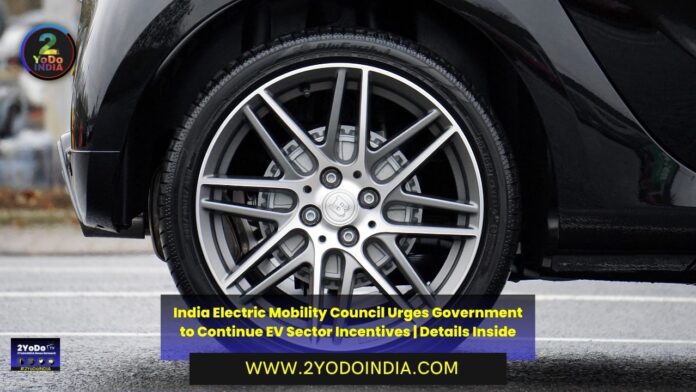Industry body IEMC demanded the continuation of incentives given to the electric vehicle sector and caution that the withdrawal of sops would reduce EV sales to 37 million units by 2030 from an estimate 125 million.
According to India Electric Mobility Council (IEMC), India Energy Storage Alliance (IESA) has estimate that on discontinuation of the demand incentives, the electric vehicle (EV) sales in India will reduce from estimate 125 million units to 37 million units by 2030.
Central government launch the FAME (faster adoption and manufacturing of hybrid and electric vehicles) scheme in 2015, under which subsidies are given to electric vehicle manufacturers and the benefit is pass on to buyers.
The second phase of the scheme FAME II was launch in 2019.
The scheme, which also provides incentives for setting up battery charging stations in the country, is likely to end in March 2024.
IEMC said in a statement :
"...to ensure sustained growth of EV adoption in India, more than 80 EV companies gathered in New Delhi and proposed a holistic reconsideration of demand and supply enablers impacting the EV industry post-FAME II scheme,".
IEMC also express concern over the government’s move to reduce subsidy under FAME II on electric two-wheelers from Rs. 15,000 to Rs. 10,000 per kWh and said the electric two-wheeler sales have drop by more than 50% due to this.
In May the EV industry sold 1,05,299 electric two-wheelers, in the subsequent month only 46,003 two-wheelers were sold, as per IEMC.
In July the sales slightly improve to 54,176 units, however, it is still around half of what the sector did in the month of May, as per IEMC.
IEMC said in a statement :
"This data shows the dependence of the EV industry on-demand subsidies. As subsidies have been the key enabler for the EV ecosystem,".
Based on IESA analysis, it is estimate that with all government support the Indian EV industry will grow at CAGR of 49% till 2030.
In the best-case scenario with demand side incentives (such as FAME scheme), the estimated EV sales in 2030 will be 125 million units and in the worst case without demand incentives, it may drop to 37 million units by 2030, as per IEMC.
The industry stakeholders also suggest the inclusion of commercial trucks and fleet mobility segments considering the distance traverse by these categories, the volume of cargo transport and potential fuel savings and CO2 reduction.
Sectors like construction equipment and tractors also need to be brought into the ambit of consideration to stimulate industry interest and encourage leading players to develop ‘make in India’ solutions for this high-potential segment.
Sudhendu J Sinha, Adviser (Infrastructure Connectivity – Transport and Electric Mobility), NITI Aayog, also ask stakeholders to think disruptively, think about new segments, and additional enablers and provide recommendations that can help provide end-to-end solutions.
IEMC members include players from automotive manufacturing, component, R&D, charging, battery swapping, testing and safety standards among many others.
Earlier this month IEMC had organise an industry dialogue between policymakers and stakeholders including players from electric two-wheeler (e2W), e3W, e4W, electric bus, truck, farm requirements, construction equipment, EV charging and battery swapping sectors.





